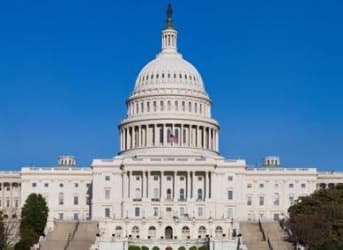An investigation by The New York Times has found that several prominent Washington, D.C. think tanks have regularly taken donations from foreign entities in exchange for using their influence over U.S. policy decisions.
The damning report, published in the Sept. 6 edition of the newspaper, revealed that some of the institutions involved have accepted multi-million dollar donations from foreign governments seeking access to inside corridors of the federal government, including Congress, executive branch agencies, and even the White House. In return, the think tanks pushed agendas favored by the donor nations and hosted public events in Washington that featured speakers from contributing countries.
The article describes in surprising detail the arrangements made between supposedly impartial, scholarly think tanks, and foreign entities pursuing their own national interests. Several of the think tanks named defended their impartiality.
“In no case did the reporters show us evidence of activity that we believe requires us to register under U.S. law as foreign agents,” Brookings President Strobe Talbott said in a press release. “The article fails to paint a fair picture of Brookings and its foreign government relationships.”
The Times article explained how it worked at specific think tanks, such as the Center for Global Development (CGD). That group accepted money from the Norwegian Foreign Affairs Ministry allegedly in exchange for convincing the U.S. government to spend more on reducing deforestation to slow climate change – one of Norway’s top priorities. In exchange for donations, CGD allegedly arranged a meeting with officials from the U.S. Treasury Department.
Norway also donated to the Center for Strategic and International Studies (CSIS) and the Brookings Institution in exchange for their support for Norway’s Arctic agenda. CSIS even launched an Arctic research program and began advocating for a greater U.S. military presence in the Arctic and protection for energy development. Brookings also tried to arrange meetings between officials from Norway’s Foreign Ministry and officials from the U.S. State Department, according to the report.
Norway is a major oil producer and has deep economic interests in the Arctic. Statoil, Norway’s partially government-owned oil company, has purchased leases on acreage in the U.S. Arctic, and is also active in other regions of the Arctic exploring for oil. Statoil, and Oslo, stand to gain if the U.S. took a more active military role in the region.
The intertwined relationships suggest that some think tanks could be operating in a legal gray area: their work on behalf of foreign governments might legally classify them as representatives of foreign countries, and since none have registered as such, they could be in violation of the Foreign Agents Registrations Act, according to legal experts who spoke to the Times.
Even if there was no quid pro quo, it is hard to deny the influence that donations have on research done at think tanks. The donations can be used to hire researchers, fund in-depth research on a topic (often chosen by the donor), and host events featuring donors.
Think tanks are non-profits, and are allowed to “educate” government officials, but not “lobby” for specific changes in policy. Often the line is a blurry one, particularly since “educational” meetings or events are planned around the same time that pending legislation or regulations are being considered in government.
In that sense, the Times report is disheartening.
On the other hand, the cozy relationship between foreign entities and think tanks is not a new story in Washington. American corporations and foundations have the same dynamic with the scholarly world in the nation’s capital.
For example, Chevron is a major donor to CSIS, which jointly launched the “Chevron Forum on Development” with the company -- a series of events featuring high-level speakers who talked about sustainable development. CSIS hosted Chevron at a public event in 2013, at which Chevron CEO John Watson “shared his views on how U.S.-based multinational corporations can help expand American influence abroad and be a positive force for progress, driving economic growth and development around the world,” as the event promo described.
There is also a flow of money going to conservative think tanks from Koch Industries – the multinational corporation run by Charles and David Koch -- although there is less of a pretense that scholarly research is being carried out at Koch-funded outfits like Americans for Prosperity.
Groups opposed to fossil fuels are in the game, as well. Tom Steyer, the wealthiest and perhaps currently most well-known environmentalist, has turned his fortune into a one-man Super PAC aimed at ousting politicians who are allies of the oil and gas industries. Money talks, and despite only recently jumping into the political fray, Steyer has a lot of doors open to him. For example, a report he partly funded earned him meetings with White House officials John Podesta and Valerie Jarrett.
The list goes on.
In other words, big money has been influencing the actions of policy think tanks for quite a while. Access to power is the most coveted commodity in Washington, and as the Times investigation proves, there is no shortage of eager buyers.
By Nick Cunningham of Oilprice.com


















Citizens for Responsible Energy Solution.... Who are these guys?
Center for Rural Affairs... who funds these guys and their promoting Clean Line Energy Partners?
It doesn't take much to start up a think tank or a NGO.